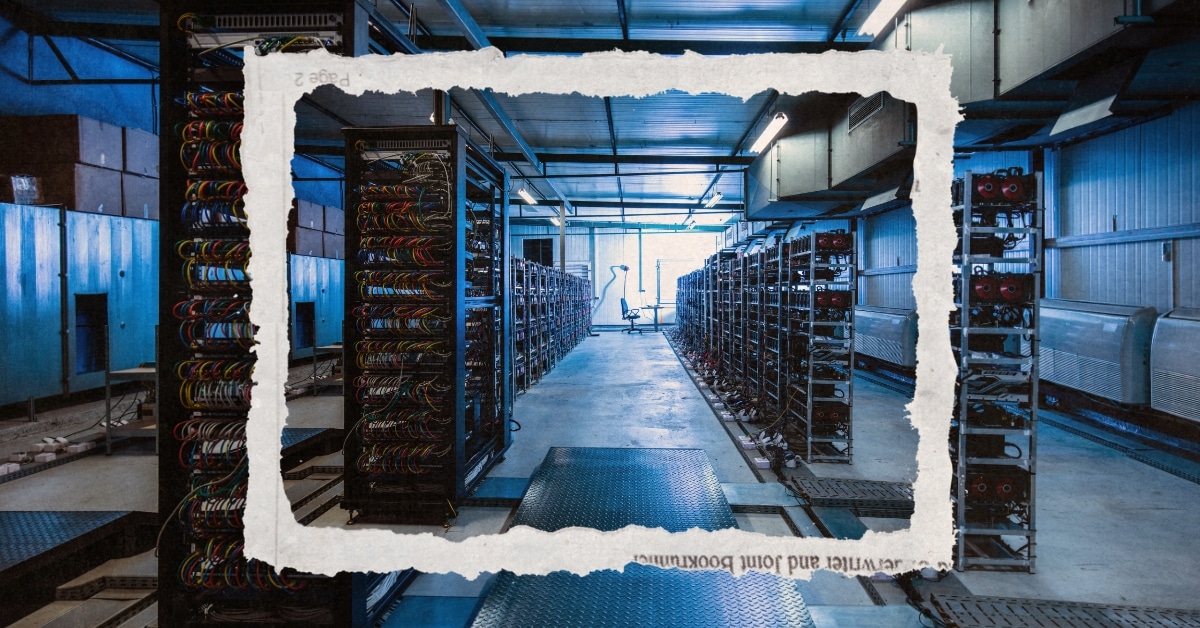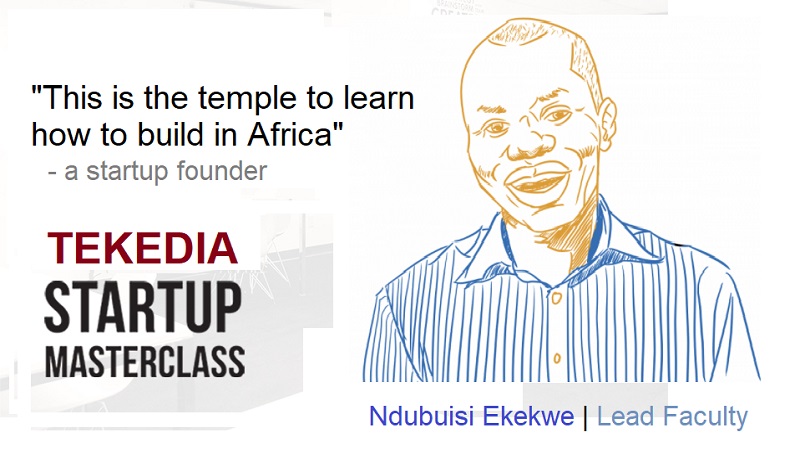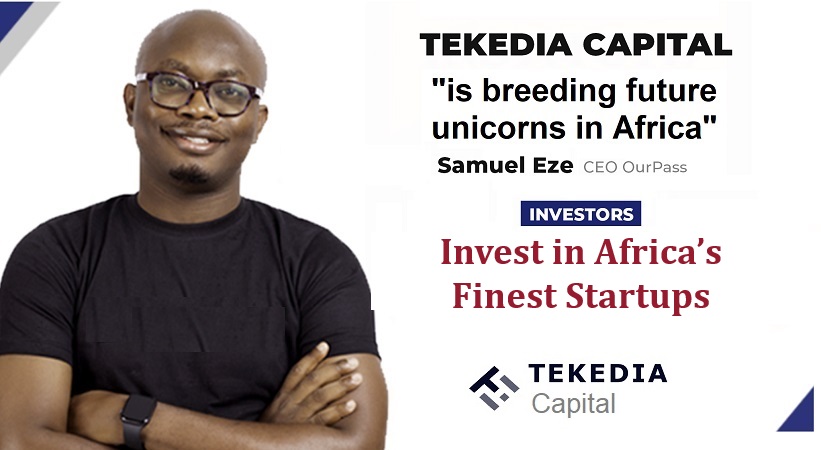News
“God Bless Bitcoin” Document Supports Cryptocurrency Ethics

From Leah MarieAnn KlettEditorial Assistant Friday, July 12, 2024 Screenshot/God Bless Bitcoin
Screenshot/God Bless Bitcoin
The intersection of faith and bitcoin, and the government’s misuse of money, is at the heart of “God bless Bitcoin”, a documentary by Christian couple Brian and Kelly Estes that hopes viewers will reconsider their relationship with money and empower them to better steward their God-given resources.
The documentary, out July 25, seeks to answer the question “How can we fix our broken money?” by examining the moral and ethical dimensions of current financial systems and the broader implications of the rise of Bitcoin.
Narrated by Natalie Brunell, the project highlights voices from both the financial and religious spheres, including Bitcoin experts like Anthony Pompliano, Cathie D. Wood, and Michael Saylor, as well as religious leaders like Dr. Darrell Bock of Dallas Theological Seminary and Father Robert Sirico.

Get our latest news for FREE
Sign up to receive daily/weekly emails with top stories (plus special offers!) from The Christian Post. Be the first to know.
“For 3,500 years, humans have used gold and silver as money. In 1971, we went fiat, and it’s clear that this system doesn’t work for everyone,” Brian Estes, CEO and CIO of Off the Chain Capital and a longtime Bitcoin enthusiast, told The Christian Post. “It steals from the poor and the middle class, and gives to the rich. It’s an unfair system, but we could get out of it.”
For the Esteses, parents of two who co-wrote and co-directed the film, the journey to creating the documentary began with a pressing concern about the state of the monetary system and a belief in Bitcoin’s potential as a more ethical alternative.
“Over the last decade, we’ve seen our money lose value, making it increasingly difficult for people to keep up with the rising cost of living,” Kelly Estes told CP.
Having worked closely with people experiencing generational poverty, she has seen firsthand the damaging effects of the current fiat money system.
“We knew something had to change,” he said.
“We wanted to explore the ethical and moral reasons behind the adoption of Bitcoin, highlighting how it can provide a more stable and fair financial system,” her husband added.
Technology as a means to better serve God
The documentary delves into how Bitcoin aligns with the ethical teachings of various faiths, including Christianity, Judaism, and Islam.
“Bitcoin is just another step in the technological development of how we can better serve God,” says one of the film’s participants.
According to the filmmakers, financial education and money are very important topics in the Bible, but they believe they are sadly under-covered in churches and schools.
“Bitcoin as a technology preserves our time and energy in a way that no one can take away from us,” Kelly Estes said. “It gives us self-sovereignty over our money so that we can use it to have great families, to procreate, to fill the earth with servants of God, which is what I believe we are meant to do.”
“It also allows us to care for the poor,” he added. “When we have enough to care for ourselves, then we are able to help others. It allows us to have that servant’s heart that we are called to have because it provides the means to do so.”
Bitcoin, he said, is also “borderless” and can offer security and autonomy in uncertain times. It’s a theme that “God Bless Bitcoin” highlights by demonstrating Bitcoin’s transformative potential for the unbanked and those living under oppressive regimes.
“Bitcoin provides financial inclusion to billions of people who lack access to traditional banks. It allows them to participate in the global economy, preserving their wealth and providing opportunities for a better life,” he stressed.
Challenging the status quo
The husband-and-wife duo are aware of the resistance to Bitcoin, particularly from established financial institutions and government agencies. The technology behind Bitcoin, which promises to make money transfers faster, cheaper and more accessible, also threatens to upend the traditional banking system, Brian Estes believes.
“The biggest opposition is coming from banks, as Bitcoin threatens their traditional revenue streams,” he said.
He drew a parallel with the revolution brought about by Voice over Internet Protocol (VOIP) technology, which made long-distance telephone charges obsolete.
“Likewise, Bitcoin allows us to move money almost for free, challenging the $2 trillion industry currently dominated by banks,” he said.
Opposition to Bitcoin isn’t limited to the banking sector alone. Political figures and lawmakers who receive significant contributions from financial institutions are also playing a crucial role in slowing Bitcoin adoption, says Brian Estes.
“Elizabeth Warren and other politicians receive contributions from banks like JP Morgan and Bank of America,” he said, adding: “These financial institutions use their influence to influence legislative opinions and slow the progress of technologies that threaten their profits. This is not just about politics; it’s about protecting financial interests.”
Critics of Bitcoin and other cryptocurrencies point out that they are not without risks.
Over the years, the price of Bitcoin, like other investments, has experienced high volatility. While the price of Bitcoin is currently trading at around $57,694 as of Friday morning, the price has dropped from a high of $64,000 in November 2021 to around $16,500 in December 2022. It has taken the price of Bitcoin more than a year to return to its November 2021 value. In recent months, the price of Bitcoin has dropped from around $69,000 in early June to its current value of over $57,000.
There are other risks associated with Bitcoin. Such as The New York Times reported in 2021, some users were unable to access their Bitcoin fortunes due to lost or forgotten keys. The paper cited cryptocurrency data firm Chainalysis to say that about 20% of Bitcoin in 2021 appeared to be lost or locked.
Additionally, cryptocurrency payments are not protected by legal safeguards. Storing cryptocurrency online is not protected by the same safeguards as online banking because it is not insured by the government like bank deposits, according to Connecticut Department of BankingThe agency stresses that cryptocurrencies should not be considered foolproof investments.
A global perspective
“God Bless Bitcoin” also argues that the current financial system is “intimately connected to the military-industrial complex and the propagation of war.” Brian Estes quoted Ezekiel 45:9, which reads, in part: “Abandon your violence and oppression and do what is right and just. Stop dispossessing my people, declares the Sovereign Lord.”
“What God is saying is, ‘Stop stealing your people’s money to go and wage unjust wars.’ And that’s what we’re doing today through inflation, through printing money. We’re stealing money from your bank account, and you don’t know it, and then we’re having these wars that are killing people all over the world,” he said. “If we’re on a Bitcoin standard, and you can’t print money, because you can’t print Bitcoin, then suddenly you can’t pay for war, and then there’s no more war.”
The filmmakers hope their film will inspire viewers to question the status quo and consider Bitcoin as a viable alternative. They want, they said, to give people the knowledge and tools to take control of their financial futures.
“We want people to open their minds … to see that there is another way,” said Kelly Estes. “We’re not suggesting that everyone go all in on Bitcoin, but rather that they consider diversifying their savings. Even a small amount of money in Bitcoin can offer hope for a more stable financial future.”
“We hope viewers understand that they have a choice. They can choose to leave an unjust system that perpetuates inequality and embrace a more just and equitable alternative,” Brian added.
“God Bless Bitcoin” to be released for free globally July 25. Executive producers include Perianne Boring and John Salley. Michael Siewierski, Ruben Figureres and Miguel Silvera are also attached as producers on the project.
Leah M. Klett is a reporter for The Christian Post. She can be reached at: leah.klett@christianpost.com
News
US Cryptocurrency Rules Delayed by ‘Never-Ending’ Lawsuits

Ripple CEO says cryptocurrency industry still seeking regulatory clarity from US
Speaking to Bloomberg News on Wednesday (July 17), Author: Brad Garlinghouse he said America is behind behind other countries which have already adopted cryptocurrency regulations.
“What we’re seeing, where it’s the UK, Japan, Singapore… even the European Union, more than two dozen countries have come together to provide a framework for cryptocurrency regulation,” Garlinghouse said.
“It’s frustrating that we as a country can’t get that regulatory framework in place. And instead, we have this never-ending lawsuit coming from the SEC that doesn’t really address the problem.”
Ripple has been the target of some of these legal disputes. Securities and Exchange Commission (SEC) sued the company in 2020, accusing it of conducting a $1.3 billion operation offering of unregistered securities tied to its XRP token.
However, last year a judge ruled that only Ripple’s institutional sales of XRP, not retail sales, violated the law, a decision widely seen as a victory for the cryptocurrency industry.
As PYMNTS noted at the time, that ruling has “far-reaching repercussions impact across the digital asset ecosystem, which has long maintained that its tokens do not represent securities contracts.”
However, Garlinghouse told Bloomberg on Wednesday that the company cannot wage multimillion-dollar legal battles over each token.
He spoke to the news agency from the Republican National Convention in Milwaukee, where the party is backing the candidacies of former President Donald Trump and Ohio Sen. J.D. Vance, both of whom are considered pro-cryptocurrency.
But Garlinghouse argued that cryptocurrencies “should not be a partisan issue,” and noted that he had recently attended a conference in Washington that included Democrats, including White House officials.
“I think they were there, listening to the industry… it was refreshing to start having that conversation,” she said.
President Joe Biden earlier this year he vetoed a measure which would have ended the SEC’s special rules for crypto-asset custodians. This legislation was supported by both the digital asset industry and the banking industry.
Ripple early this year donated $25 million to the cryptocurrency industry’s super PAC Fair Smoothiewith Garlinghouse stating at the time that such donations would continue every year, as long as the industry had its detractors.
Second Open SecretsWhich monitor spending For campaigns, the PAC has spent $13.4 million this year, much of it to help defeat Rep. Katie Porter’s (D-Calif.) U.S. Senate campaign.
News
The Future of Cybersecurity in the Cryptocurrency Industry

The cryptocurrency space has had a tumultuous journey, with its fair share of ups and downs. As we look to the future, one area that remains a constant focus is cybersecurity. The digital nature of cryptocurrencies makes them inherently vulnerable to cyber threats, and as the industry evolves, so does the landscape of potential risks.
In 2022, the cryptocurrency market faced significant challenges, with over $2 trillion in market value lost. This event served as a wake-up call for the industry, highlighting the need for robust cybersecurity measures. The future of cryptocurrency security is expected to see a shift towards more regulated and established institutions taking the reins of crypto technology and blockchain infrastructure.
The decentralized nature of cryptocurrencies offers numerous benefits, such as transparency and financial inclusion. However, it also introduces unique security challenges. The risk landscape is filled with threats such as hacking, phishing, ransomware attacks, malware, and social engineering. These threats not only lead to financial losses, but also damage the reputation and trust within the cryptocurrency ecosystem.
Mini-MBA Tekedia edition 15 ((September 9 – December 7, 2024) started recordings; Register today for discounts reserved for early bird customers.
Tekedia AI in Business Masterclass Opens registrations Here.
Join the Tekedia Capital Syndicate and IInvest in Africa’s best startups Here.
The decentralized nature of cryptocurrencies offers many benefits, but it also presents unique security challenges. Cyber risks such as hacking, phishing, and ransomware pose threats to the integrity of digital assets. The infrastructure that supports cryptocurrencies is not immune to vulnerabilities, including smart contract flaws and exchange hacks.
To address these vulnerabilities, the infrastructure that supports cryptocurrencies must be strengthened. Smart contract vulnerabilities, exchange hacks, wallet breaches, and flaws in the underlying blockchain technology are significant concerns that must be addressed to ensure the security and integrity of digital assets.
As cybercriminal tactics and techniques become more sophisticated, the cryptocurrency industry must stay ahead of the curve. The future will likely see more targeted attacks, exploiting weaknesses in infrastructure, networks, and human factors. This requires a proactive and multifaceted approach to cybersecurity.
To mitigate these risks, several measures must be adopted:
Strengthening security measures: Developers, exchanges, and wallet providers must improve security protocols, use strong encryption, implement multi-factor authentication, and conduct regular security audits.
Education and awareness: Users should be educated on best practices for protecting their digital assets, including using strong passwords, recognizing phishing attempts, and using hardware wallets for secure storage.
Looking ahead, the cryptocurrency industry is expected to see an increased focus on robust security measures. Blockchain projects and exchanges are likely to invest in advanced encryption techniques and decentralized storage solutions to protect user assets. The future impact of cyber risk on cryptocurrencies will depend on the collective efforts of stakeholders to address vulnerabilities and strengthen security measures.
Collective efforts by stakeholders in the cryptocurrency space are crucial to address vulnerabilities and strengthen security measures. While challenges persist, advances in cybersecurity technologies and practices offer hope for a more secure and resilient cryptocurrency ecosystem.
The future of cybersecurity in the cryptocurrency industry depends on finding a balance between innovation and regulation. It requires a collaborative effort from all parties involved, from developers to end users, to create a secure environment that fosters trust and growth in the industry. As we move forward, it is critical that lessons learned from past events guide the development of stronger security measures, ensuring the longevity and stability of cryptocurrencies as a vital part of the modern economic toolkit.
Like this:
Like Loading…
News
Bullish XRP and RLBK price predictions rise, outpacing the broader cryptocurrency market, prompting Shiba Inu holders to switch!

Bitcoin’s one-week surge from $60,000 has pushed other cryptocurrencies into an uptrend. However, for many altcoins, this trend has been temporary. Altcoins such as XRP and Shiba Inu (SHIB) have experienced price drops. However, Rollblock, a new altcoin on the Ethereum blockchain, has thrived during this period, attracting thousands of investors looking for long-term growth.
XRP’s Nearly 30% Growth Over Last Week Drops as Selling Pressure Increases
XRP is seeing further price decline as Ripple investors withdraw their profits from the token. The surge in XRP’s price to $0.64 in the past week has provided investors with a perfect opportunity to increase their returns in the short term. With the ongoing sell-off in XRP, XRP has jumped over 8% in the past day and is now trading at $0.59. However, analysts tracking XRP indicators predict that XRP could still extend its gains by over 30% in the coming weeks.
Shiba Inu (SHIB) marks its third consecutive day of losses
Shiba Inu (SHIB) is in a period of adjustment after a week of strong gains. In the last 24 hours, SHIB has seen a jump of over 7%, reflecting a natural market fluctuation. Analysts are observing a death cross on the Shiba Inu chart, which historically signals the potential for future opportunities as the market stabilizes. As investors explore new possibilities, some are diversifying into promising altcoins like Rollblock (RBLK) to strategically rebalance their portfolios and capitalize on the emerging trend.
Rollblock (RBLK) Up Another 7% as New Investors Join Pre-Sale
Rollblock (RBLK) has taken the cryptocurrency market by storm, having attracted investors from more popular altcoins like Shiba Inu (SHIB) and XRP. Rollblock’s growth is attributed to its utility in the $450 billion global gaming industry.
Rollblock aims to use blockchain technology to bridge the gap between centralized and decentralized gambling. With blockchain technology, Rollblock secures every transaction in its online casino, providing transparency and convenience to millions of players who are uncomfortable placing bets on other iGaming platforms.
This innovative use of blockchain technology in the industry has grown Rollblock to over 4,000 new users in less than two months. With plans to add sports betting, this number is expected to grow exponentially in Q3.
Rollblock uses a revenue sharing model that splits up to 30% of its casino’s weekly profits with token holders. This happens after Rollblock buys back $RBLK from the open market and uses half of it for rewards. The other half is burned to increase the price of $RBLK.
Rollblock price has seen four increases in the past month with $RBLK tokens now selling for $0.017. Analysts predict that at the current growth rate, Rollblock could increase by over 800% before the presale ends. For investors looking for a long-term token with growth potential, phase four is the best time to buy Rollblock before its price skyrockets!
Discover the exciting Rollblock (RBLK) pre-sale opportunities now!
Website:https://Rollblockpresale.io/
Social: https://linktr.ee/Rollblockcasino
No spam, no lies, just insights. You can unsubscribe at any time.
News
Texas Crypto Miners Turn to AI as Crypto Declines

As cryptocurrency mining becomes less profitable, Texas cryptocurrency mining companies are switching to supporting artificial intelligence companies.
Bitcoin miners, with their sprawling data centers and access to significant energy resources, are ideally suited for computationally intensive AI operations, and as cryptocurrency mining becomes less profitable, companies see this shift as a logical answer to their problems.
On Thursday, Houston-based Lancium and Denver-based Crusoe Energy Systems announced a multibillion-dollar deal to build a 200-megawatt data center near the West Texas city of Abilene to support advanced artificial intelligence applications such as medical research and aircraft design, CNBC reported. The plant represents the first phase of a larger 1.2 gigawatt project.
Lancium and Crusoe’s move into AI mirrors a broader trend among bitcoin miners. The combined market capitalization of the top U.S.-listed bitcoin miners hit a record $22.8 billion in June. Companies like Bit Digital and Hut 8 are diversifying into AI, with Bit Digital securing a $92 million annual revenue deal to supply Nvidia GPUs and Hut 8 raising $150 million to expand its AI data center.
But the growing popularity of these operations also presents challenges, particularly for the Texas power grid. Last month, the Electric Reliability Council of Texas announced that the state is expected to nearly double its energy production by 2030 to meet the high energy demands of data centers and cryptocurrency operations.
Lieutenant Governor Dan Patrick expressed concern about the projections.
“Cryptocurrency miners and data centers will account for more than 50% of the additional growth. We need to take a close look at these two sectors,” He wrote on Twitter/X. “They produce very few jobs compared to the incredible demands they place on our network. Cryptocurrency miners could actually make more money selling electricity to the network than they do from their cryptocurrency mining operations.”
Analysts predict significant growth in data center power capacity, which is expected to account for up to 9% of U.S. electricity consumption by 2030.
The operations also pose challenges for nearby cities. Earlier this month, TIME reported that a crypto-mining facility was seriously compromising the health of residents in the city of Granbury. TIME reported more than 40 people with serious health problems, including cardiovascular disease, high blood pressure and hearing loss. At least 10 of the residents needed to go to the emergency room or an urgent care facility.
The disturbances were caused by the extreme noise generated by the crypto-mining facility’s fans, which are used to keep the machines cool. While the proposed data center in Abilene would use liquid cooling systems, it’s still unclear whether the facility’s operations would pose a health risk to local residents.
-

 Nfts1 year ago
Nfts1 year agoShardLab Launches ZK-Based Tool for Digital Identity and NFT Vouchers
-

 News1 year ago
News1 year agoWallet recovery firms are abuzz as stranded cryptocurrency investors panic in the bitcoin boom
-

 Bitcoin1 year ago
Bitcoin1 year agoBitcoin, Ethereum, Solana and Cryptocurrency Markets Look Ready to ‘Send’ as Stars Align, According to Investor Chris Burniske
-

 Altcoins1 year ago
Altcoins1 year agoThree Altcoins Poised for Significant Growth in 2024: ETFS, OP, BLAST
-

 Altcoins1 year ago
Altcoins1 year agoAccumulate these altcoins now for maximum gains
-

 Nfts1 year ago
Nfts1 year agoOG Crypto Artist Trevor Jones Unveils Groundbreaking Collection of Ordinals | NFT CULTURE | NFT News | Web3 Culture
-

 Bitcoin1 year ago
Bitcoin1 year agoBillionaires are selling Nvidia stock and buying an index fund that could rise as much as 5,655%, according to some Wall Street analysts
-

 Videos9 months ago
Videos9 months agoKamala just won the boner! [Bad For Crypto]
-

 Videos1 year ago
Videos1 year agoLIVE FOMC 🚨 Could be CATASTROPHIC for Altcoins!
-

 News1 year ago
News1 year agoA Guide for Newcomers & Beginners – Forbes Advisor
-

 Videos1 year ago
Videos1 year agoAttention: a historically significant BITCOIN signal has just appeared!
-

 Videos1 year ago
Videos1 year agoSTOCK MARKET FUD! ⚠️ [Why This Is GREAT For Bitcoin Traders!]















